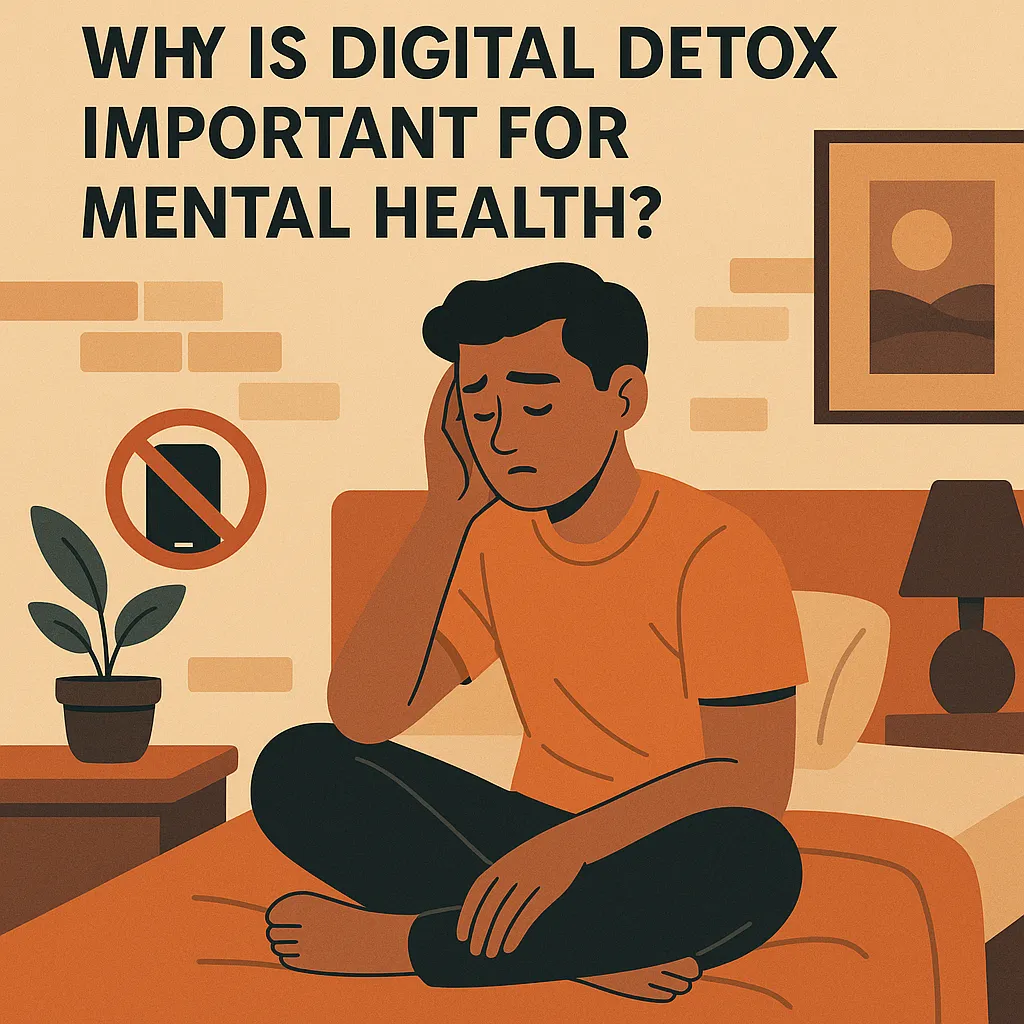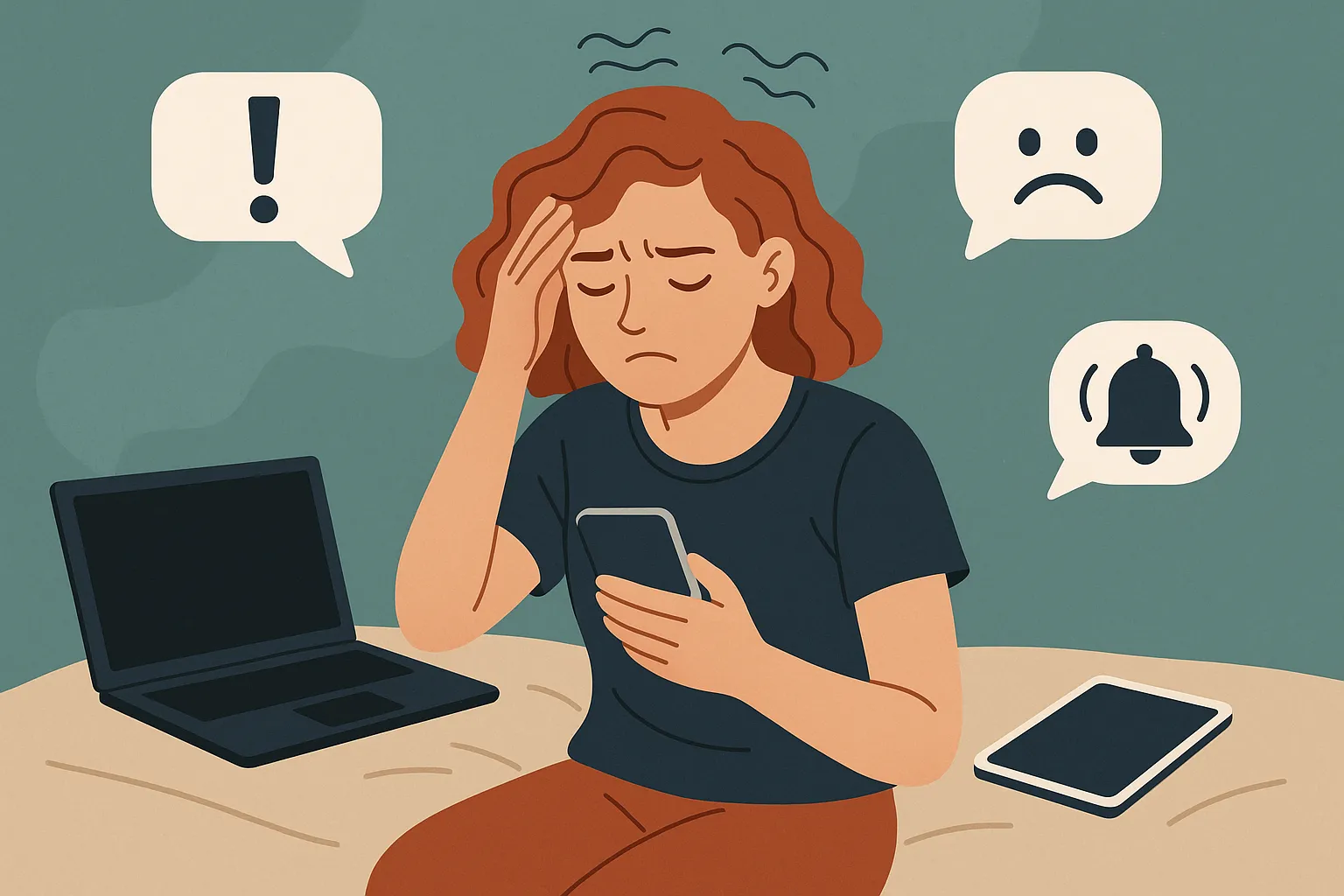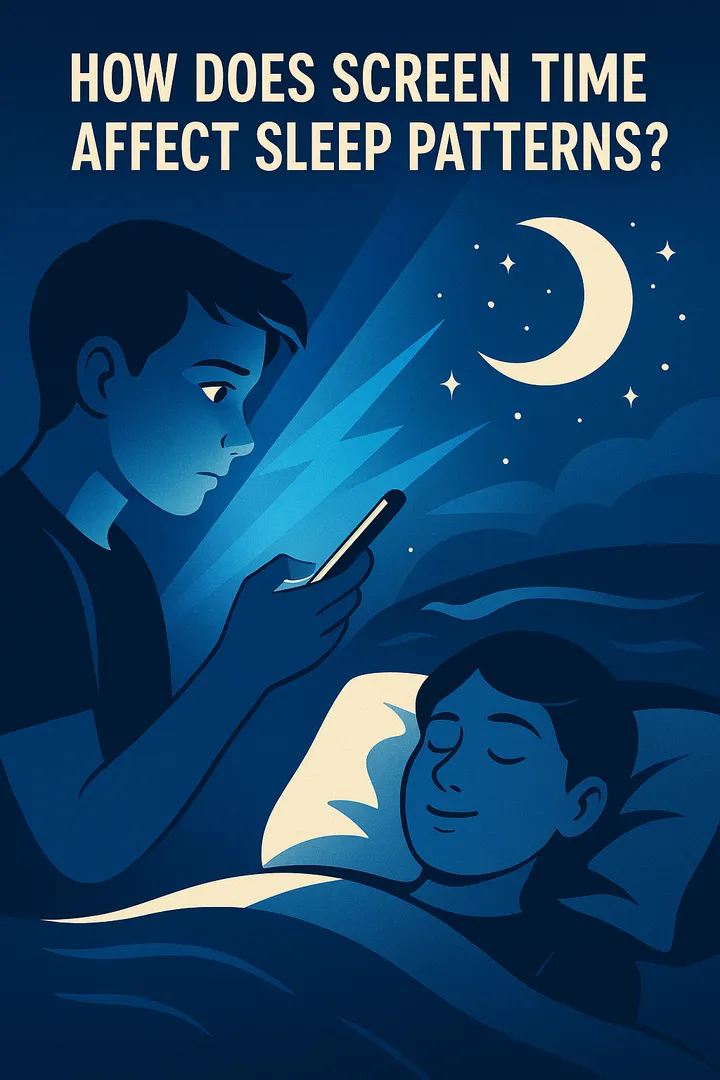In today’s hyper-connected world, our reliance on digital devices has become an integral part of daily life. While technology offers numerous benefits, the constant connectivity can take a toll on our mental health. A digital detox, the conscious effort to unplug from digital devices, is increasingly recognized as crucial for maintaining mental well-being. This article explores why digital detox is important for mental health, offering practical guidance and answering common questions.
The Impact of Digital Overload on Mental Health
The pervasive presence of technology has blurred the lines between work and personal life, leading to digital overload. This constant interaction with digital devices can result in several mental health issues:
- Stress and Anxiety: Continuous notifications and the pressure to stay connected can elevate stress levels and contribute to anxiety disorders.
- Sleep Disruption: The blue light emitted by screens interferes with the body’s natural sleep-wake cycle, leading to insomnia and poor sleep quality.
- Reduced Attention Span: Frequent digital interruptions can impair concentration, making it difficult to focus on tasks.
- Social Isolation: Paradoxically, while digital platforms connect people, excessive use can lead to face-to-face social isolation and loneliness.
Benefits of a Digital Detox
Recognizing the negative effects of digital overload, a digital detox can provide numerous mental health benefits:
- Improved Mental Clarity: Stepping away from screens can enhance mental clarity and improve problem-solving abilities.
- Enhanced Sleep Quality: Reducing screen time, especially before bedtime, can lead to better sleep quality.
- Increased Productivity: By minimizing distractions, individuals can focus better and increase their productivity.
- Strengthened Relationships: Spending less time online allows more opportunities for meaningful in-person interactions.
Concrete Examples and Use Cases
Digital detox can be tailored to fit various lifestyles and preferences:
- The Weekend Unplug: Designate weekends as screen-free time to recharge and engage in offline activities such as hiking, reading, or family outings.
- The Evening Wind-Down: Implement a no-screen rule an hour before bedtime to improve sleep hygiene and reduce nighttime anxiety.
- The Social Media Sabbath: Take a break from social media platforms for a day or a week to alleviate pressure and reduce comparison-induced stress.
Use Case: Corporate Retreats
Companies are increasingly recognizing the value of digital detox in enhancing employee well-being. Corporate retreats focused on digital detox provide employees with the opportunity to disconnect in a supportive environment. These retreats often include activities like meditation, team-building exercises, and workshops on stress management, leading to improved morale and productivity.
Key Points and Best Practices
- Start Small: Begin with short digital detox periods and gradually increase the duration to make the transition smoother.
- Set Boundaries: Establish specific times for checking emails and social media to create a healthier relationship with technology.
- Engage in Offline Activities: Replace screen time with activities that promote relaxation and creativity, such as reading, art, or exercise.
- Communicate Your Intentions: Inform friends and colleagues about your digital detox plans to manage expectations and gain support.
FAQ
1. What is a digital detox?
A digital detox is the intentional act of disconnecting from digital devices, such as smartphones, computers, and tablets, for a specified period to improve mental health and well-being.
2. How long should a digital detox last?
The duration of a digital detox varies based on individual preferences and needs. It can range from a few hours daily to longer retreats lasting several days or weeks.
3. Can a digital detox improve mental health?
Yes, a digital detox can significantly improve mental health by reducing stress, anxiety, and sleep disturbances while enhancing focus, productivity, and social connections.
4. Is it possible to do a digital detox while working?
Yes, even professionals can incorporate digital detox practices by setting boundaries around work-related screen time, taking regular breaks, and engaging in offline activities during personal time.
5. Are there any tools to help with a digital detox?
There are various apps and tools designed to assist with digital detox, such as screen time trackers, app blockers, and mindfulness apps that encourage breaks and promote relaxation.
Conclusion
In an era dominated by digital interactions, taking a digital detox is more important than ever for safeguarding mental health. By consciously unplugging from technology, individuals can reduce stress, improve sleep, and foster deeper personal connections. Whether it’s a weekend retreat, an evening wind-down, or a social media sabbath, the benefits of a digital detox are substantial and far-reaching. Embracing these practices can lead to a healthier, more balanced lifestyle in our digital age.
For more insights on the impact of technology on mental health, consider exploring resources from external experts, such as Mental Health America’s guide on technology and mental health.







